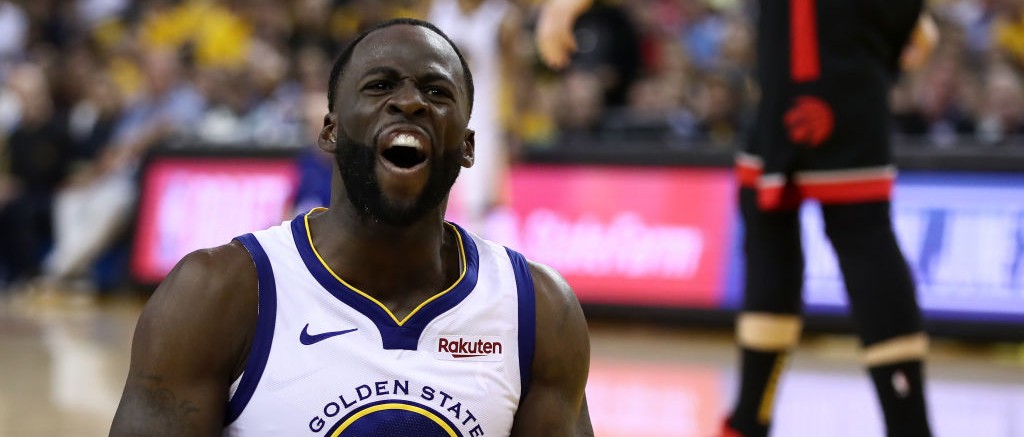For a long time, Charles Barkley and Draymond Green have exchanged barbs through the media. Green is well-known for his no-holds-barred attitude, both on and off the court, and Barkley is legendary for having (very) little filter in his role as the face of TNT’s NBA studio coverage.
In advance of the NBA’s restart in Orlando, TNT launched a five-part series called “The Arena,” which the network describes as “a new in-depth storytelling franchise created to provide a thought-provoking forum for content on topics occurring on and off the court of play.” Green and Barkley are both panelists, alongside Dwyane Wade and Cari Champion, and the first episode featured an early conversation between the two men on their issues in the past.
Chuck and Draymond discuss their relationship on #TheArena pic.twitter.com/1k3nkTqmSw
— NBA on TNT (@NBAonTNT) July 21, 2020
At the outset, Barkley plainly says “I like Draymond,” while noting (with a smile) that “he does annoy me at times on the court.” From there, Green gives a more serious answer about why Barkley’s commentary has bothered him in the past.
“He’s a black man,” Green said. “I respect him. The issue I’ve had is that a lot of people watch the game of basketball and they don’t know what they’re looking at. So when they look at a Chuck or at different guys who have this platform, they take what you’re saying and they listen to that and they run with that. For me, it hasn’t necessarily affected my pockets. But there are a lot of guys in this league that, people run with what guys say on these platforms, and it affects guys’ pockets.”
Later, Green said of Barkley that he has “done too many great things in this league and won a lot to hear some of the stuff he is saying about me.” Of course, it will be interesting to see if anything changes with Barkley, especially when he’s not sitting next to Green on a panel, but this appears to be a situation in which both (and especially Green) were candid about their feelings. In addition, Green makes interesting points, and Barkley seems to be willing and open to listening to perhaps inform his commentary in the future.







